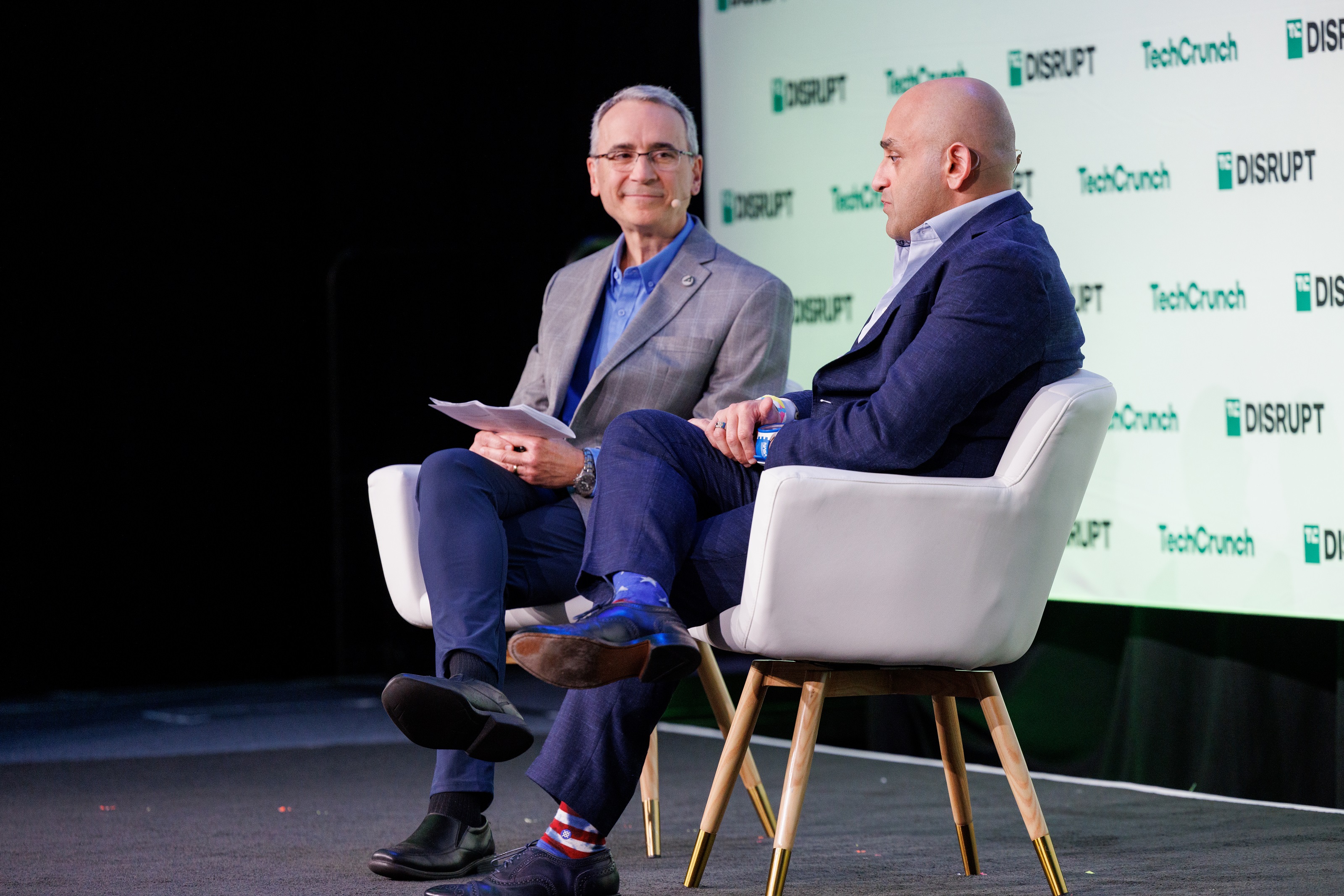
New opportunities for commercial collaboration are driving rapid innovation, opening up new pathways and options for the nation’s space programs to approach mission designs and systems.
Recently held in San Francisco, TechCrunch Disrupt 2024 highlighted the latest breakthroughs in technology, and the value of collaboration between the public and private sectors. The yearly event is open to entrepreneurs, investors, tech enthusiasts and media from around the world.
The Aerospace Corporation once again joined forces with TechCrunch at Disrupt SF 2024 to deliver engaging panel discussions with leaders across defense, civil and commercial space, as well as a Space Challenge pitch-off for startups to showcase innovative concepts poised to transform commercial space operations.
During the tech event attended by some 10,000 innovators and investors, Aerospace demonstrated its commitment to advancing space technology and fostering collaboration across government partners with the tech community. The company also emphasized the vital role that startups play by providing fresh perspectives, challenging traditional approaches and enhancing the agility and resilience of space operations.
Aerospace hosted the Space Stage, with fireside chats, a pitch-off, and panels with space and tech leaders.
First, Aerospace President and CEO Steve Isakowitz joined NASA Chief Technologist AC Charania for a fireside chat that explored cislunar space as a key area for future commercial activity, infrastructure and technology development, and as a platform for deeper space exploration.
“The strategy at NASA is not only to return to the Moon but to have longer surface stays, maturing technologies, developing a lunar space station and getting the experience to then help us achieve a human exploration mission to Mars and to the rest of the solar system,” said Charania.
Their conversation emphasized the critical role of public-private partnerships, the opportunities and challenges of building a thriving lunar ecosystem, and how the commercial sector is positioning itself at the heart of this new era of exploration.
“It used to be true rocket science to get satellites into space,” said Isakowitz. “But it’s no longer the world’s super-powers that are doing this. It’s startups, and with a few million dollars, they can put great things in space.”
Next, Aerospace VP and CTO Dr. Debra Emmons participated in a panel focused on startups in dual use, discussing the challenges and opportunities for startups entering the highly regulated government and defense sectors in an environment dominated by traditional prime contractors. The panel also addressed the ways investors can help startups compete for government and defense contracts.
“If you’re a startup, you really have to be thinking about what a sustainable business is. Having advisors in the areas of policy and the regulatory can really help you build relationships and trust,” said Emmons. “Going forward, we’re going to need to see more flexible funding and a change in the culture of risk aversion, and the way you build that change in the culture is through successes.”
Aerospace was also once again proud to sponsor and organize its yearly pitch-off, creating an open call for a competition for space startups working in five areas: robotics, autonomous systems, AI/ML, vision systems, and propulsion and navigation. Engineering and science teams at Aerospace reviewed and selected the most compelling innovations from these companies.
Isakowitz congratulated this year’s winner -- Xona Space Systems’ PULSAR, the first direct-to-device precision satellite navigation service.
As the space industry continues to evolve rapidly, Aerospace remains at the forefront, driving innovation and underscoring its mission to inspire, equip and nurture the next generation of space innovators.
